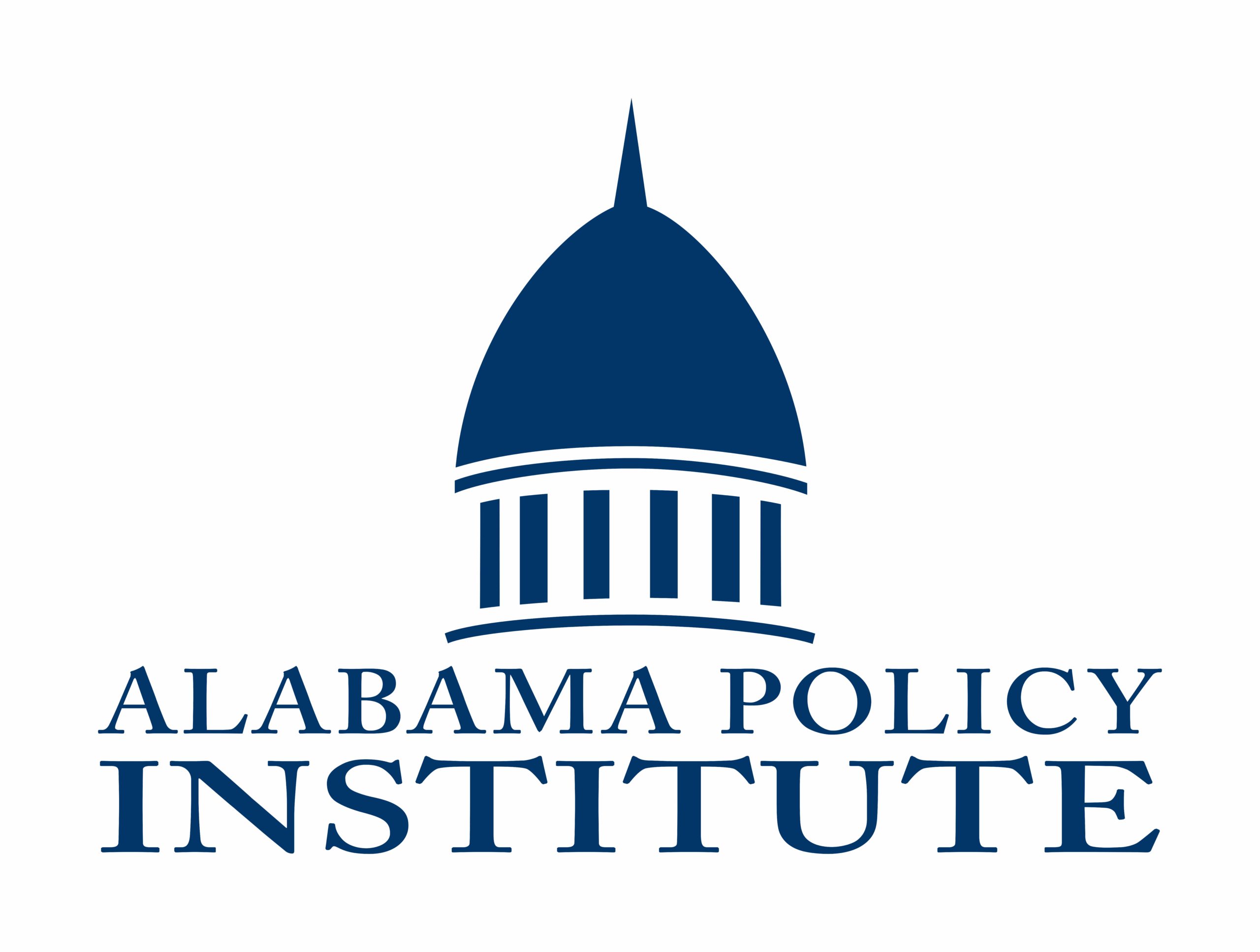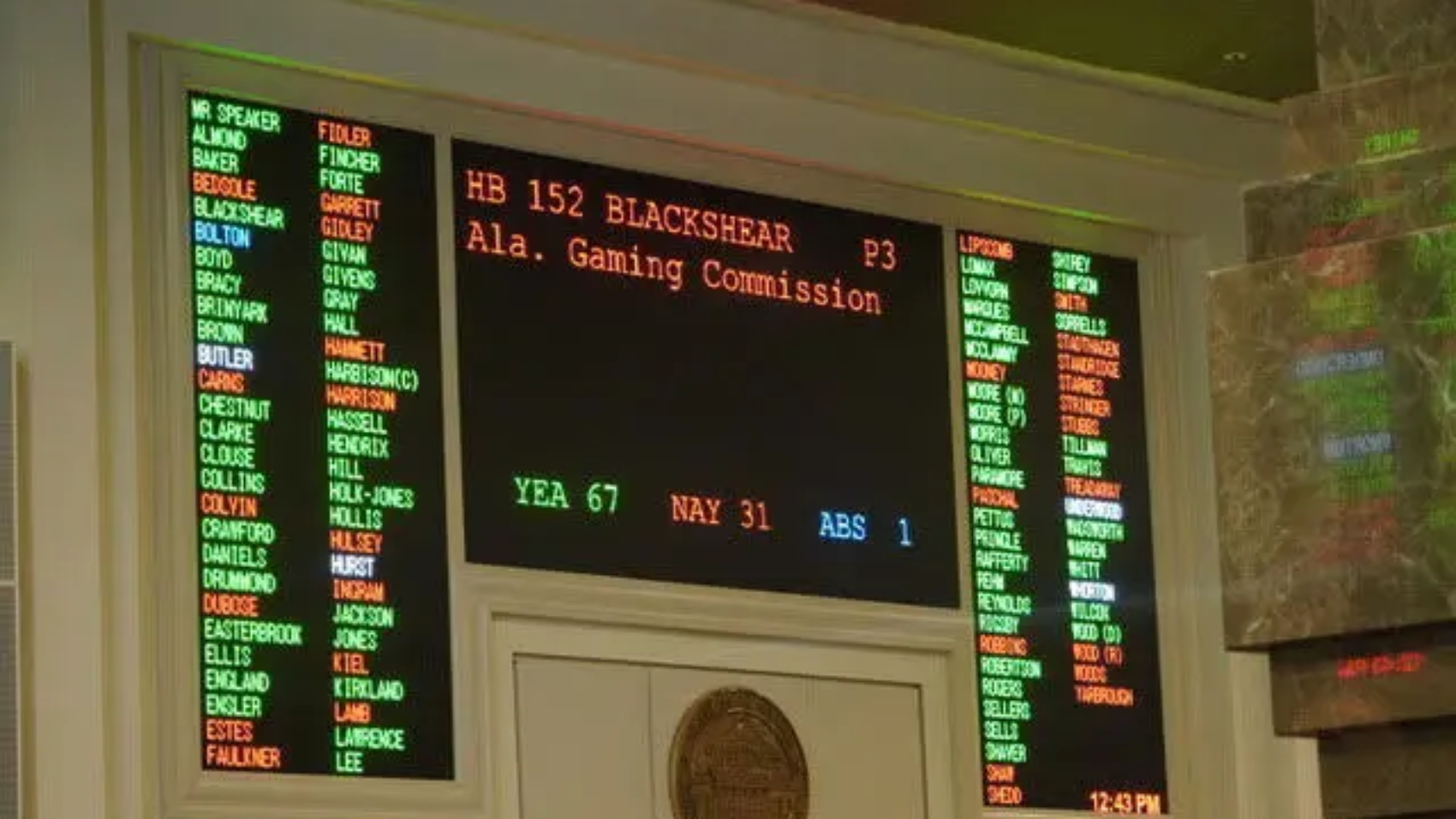The Alabama Policy Institute (API) released a report outlining concerns about the gaming bills passed by the Alabama House of Representatives last week.
The two bills include the enabling legislation, House Bill 152 (HB152) and the constitutional amendment, House Bill 151 (HB151), allowing people to vote on gaming in Alabama, including casinos, a lottery, and sports betting.
“The language proposed in the constitutional amendment (CA) is vague and intentionally positive,” the API report states. “It is not a representation of the foils of this proposal and is meant to mislead the public into voting for something they might not support otherwise.”
Among concerns on the CA bill, the API said it doesn’t define “casino-style gambling,” it allows the locations of the casinos to be changed without a vote of the people, and it could lead to the legislature increasing or decreasing the rate of taxation without a vote of the people.
Another aspect of the bill that has led to questions is the creation of the Gaming Enforcement Agency. The law enforcement arm of the gaming commission would be expected to enforce gaming laws statewide and shut down existing illegal operations. However, the agency would operate outside the scope of the Alabama Law Enforcement Agency (ALEA).
“There is no guidance as to how large that staff of officers would be, but they would have full police powers and serve outside the scope of the Attorney General and the Alabama Law Enforcement Agency,” the report stated. “The powers of the enforcement division are alarming; they would have general police powers and can use ‘any means necessary’ to enforce any state law on behalf of the commission. They would only answer to themselves and there are no restrictions regarding conflicts of interest.”
A small percentage of Gaming Trust Fund (GTF) revenues would go to local governments where casinos are located, but there are several other proposals for GTF monies. A proposal to put money into mental, behavioral and developmental health care would be for “adults with income below 138 percent of the federal poverty level and parents or other caretaker relatives of dependent children with income between 14 and 138 percent of the federal poverty level.”
Other proposed uses for the GTF are the provision of mental health care, including the care and treatment of individuals with behavioral health needs and developmental disabilities and associated prevention, treatment, and recovery services and supports.
“This is an expansion of Medicaid, or KayCare, without the label,” the API stated.
Other proposals include transportation needs, state park improvements, bonuses to state and education employees and retirees, drug court support, veteran court support and other court-related programs.
As for sports betting, the API does not support what it calls the “most addictive form of gambling.” The report also points out there is no limit on the number of sports betting licenses in the legislation. According to the API, those issues could open up the possibility for more fraud and abuse.
The API also criticized parts of the legislation that would legalize a statewide lottery. The report pointed out the lottery commission would consist of seven members appointed by the governor.
“The Lottery Corporation, solely appointed by the Governor would be paid employees, but […] they would be exempt from the state bidding laws,” the report stated.
The API said the Lottery for Education Fund would allow a scholarship program for public two-year community and technical colleges.
“Those seeking to vote for a lottery to fund college scholarships in the mold of the Georgia HOPE scholarship program will be disappointed to find out that scholarships for Alabama students at 4-year colleges aren’t included, though a direct funding stream for 4-year colleges for research purposes is included,” the report said.
The API called the legislation a “hotbed of corruption” and called for many changes.


